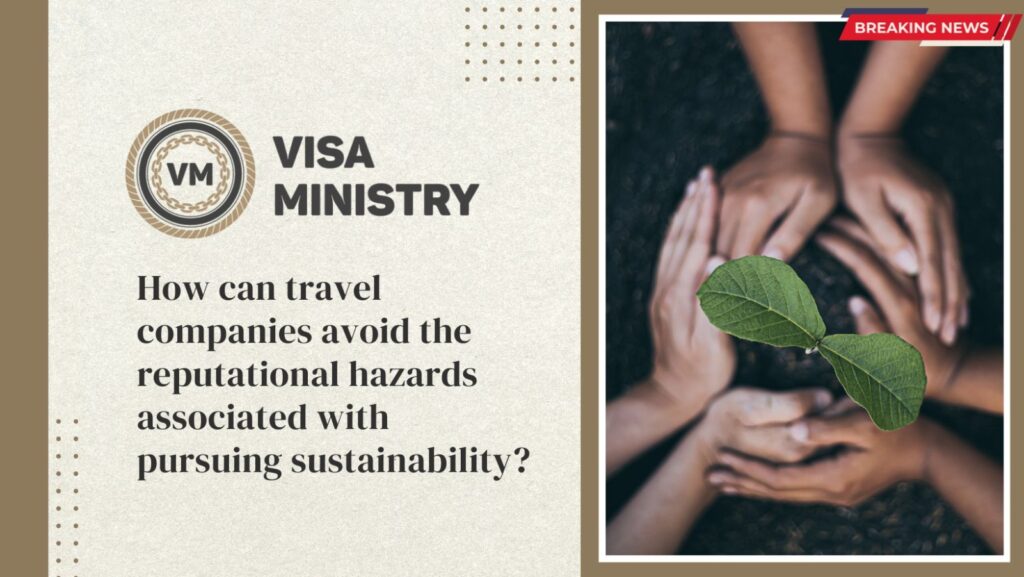Recent Earth Day (22 April) and World Environment Day (5 June) brought with them inescapable tales of disgraceful greenwashing by energy companies, global banks, and automobile manufacturers. As an industry that contributes 8-11% of global greenhouse gas emissions (WTTC, 2022), travel companies have a significant role to play in adopting greener practises; however, they can easily face reputational risks in doing so: accusations of greenwashing or backlash from those opposed to environmental policies can leave many companies thinking it is better not to bother.
For those in the travel industry who are truly committed to change, this creates a fear of launching green campaigns publicly, resulting in the exact opposite: “green-hushing,” or not communicating what they are doing. This not only deprives companies of the deserved benefits of acting virtuously, but also diminishes the impact of such actions, as engagement levels are lower due to a lack of awareness.
Therefore, what should travel companies do in terms of communication when attempting to act sustainably? Where should their efforts be concentrated? We questioned several experts in the travel technology industry.
Christian Sabbagh, Founder & CEO of travel SaaS provider Travelsoft – owners of platforms such as Orchestra, Traffics and Travel Compositor – comments: “In an increasingly environmentally conscious world and a very strong media focus on the travel industry regarding this subject, travel companies are under increasing pressure to not only reduce their carbon footprint but also to communicate and report their efforts in a transparent and meaningful manner. I believe that as an industry, we should view this topic as a positive challenge that we should embrace, act upon, and communicate our successes. By responding affirmatively to this pressure, we can advance more quickly and remain one step ahead.”
Looking at how hotels present themselves in their sales and marketing channels, Janet Jaiswal, VP of Marketing at Cloudbeds, a technology provider for independent hotels, believes that “it’s not enough to just make changes behind the scenes; companies must also communicate these efforts to their customers in order to make a difference.” In a world where eco-friendliness is increasingly important to travellers, failing to follow through on sustainability initiatives once the guest is on the property can result in reduced guest satisfaction, cancellations, and fewer bookings over time. In order to benefit the environment and maintain profitability, businesses must adopt a holistic approach to sustainability.
Alex Gisbert, CEO of FastPayhotels, a global B2B platform for travel sellers and hotels, notes that while much of the focus is on those who have a large carbon footprint, such as airlines and hotels, all businesses in the travel distribution ecosystem must accept that the days of saying ‘that’s not me’ are over. “The carbon footprint of the travel-focused technology sector – bedbanks, GDS providers, channel administrators, payments services, property management systems, PSS platforms, etc. – may have a negligible direct carbon impact compared to that of the suppliers, but it still exists. Moreover, genuine sustainability is about much more than just carbon footprint. There are steps in the correct direction, but they are not as well communicated or coordinated as they are in the B2C space, and they need to find their voice, neither overemphasising nor underemphasizing their role and impact. Start small is my recommendation.”
In light of the challenges faced by tourism boards, Carlos Cendra from travel intelligence provider Mabrian adds, “DMOs have a unique opportunity to make meaningful contributions to sustainability, while avoiding the risks of greenwashing and backlash from those opposed to environmental policies.” Tourism sustainability must be approached from a variety of perspectives, including environmental, social, economic, and structural dimensions. Managers of DMOs are responsible for implementing a sustainable culture for both the tourism industry and residents. This requires time and effort to establish, but it is the only method to bring about a genuine and lasting change. In contrast, the ‘patchwork’ strategy of uncoordinated sustainability actions is nearly ineffective and can give the impression of greenwashing.
Source: traveldailymedia

